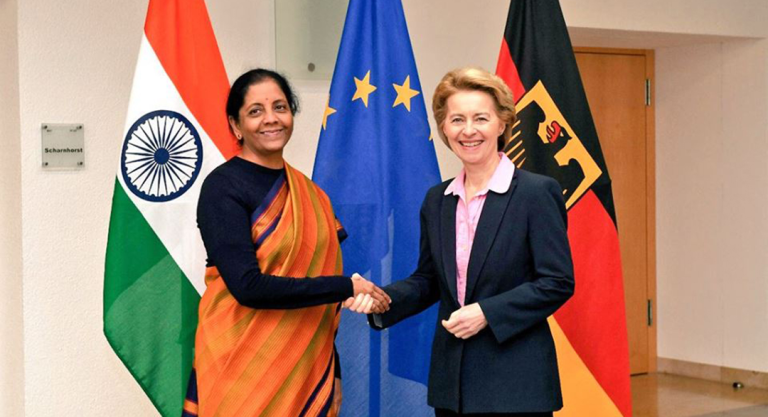Chinese Ambassador to India Xu Feihong came out strongly against Washington’s decision to impose steep tariffs on Indian goods, terming the United States ‘a bully’.
China Slams US Tariffs On India
Chinese Ambassador to India Xu Feihong came out strongly against Washington’s decision to impose steep tariffs on Indian goods, terming the United States ‘a bully’. He said China ‘firmly opposed’ the move and vowed that Beijing would stand with India, while also calling for deeper economic and strategic cooperation between Asia’s two biggest neighbours.
Xu accused Washington of hypocrisy, arguing that the US had long benefited from free trade but was now weaponising tariffs as bargaining tools. “US has long benefited from free trade but now uses tariffs as bargain chips. US imposed tariffs of up to 50% on India. China firmly opposes it. Silence only emboldens the bully. China will firmly stand with India,” Xu said.
Feihong expressed China’s interest in boosting trade with India, saying China is open to more Indian goods like IT, software, and biomedicine, while offering its strength in electronics, infrastructure, and clean energy. He added that connecting the two markets would create benefits greater than expected.
EAM Jaishankar Meets Putin in Moscow
In a pointed diplomatic signal amid escalating US pressure, EAM S Jaishankar met Russian President Vladimir Putin in Moscow on Thursday, reinforcing India’s strategic ties with Moscow even as Washington presses ahead with tariffs and warnings over New Delhi’s energy trade with Russia. The high-level meeting, part of efforts to finalise President Putin’s year-end visit to India, came just hours after Jaishankar held wide-ranging talks with Russian Foreign Minister Sergey Lavrov.
“We are not the biggest purchasers of Russian oil, that is China. We are not the biggest purchasers of LNG, that is the European Union. We are not the country which has the biggest trade surge with Russia after 2022; I think there are some countries to the South,” he said. Lavrov said: “We see a special importance in our relations as we see the emergence of a new architecture of international relations.”










